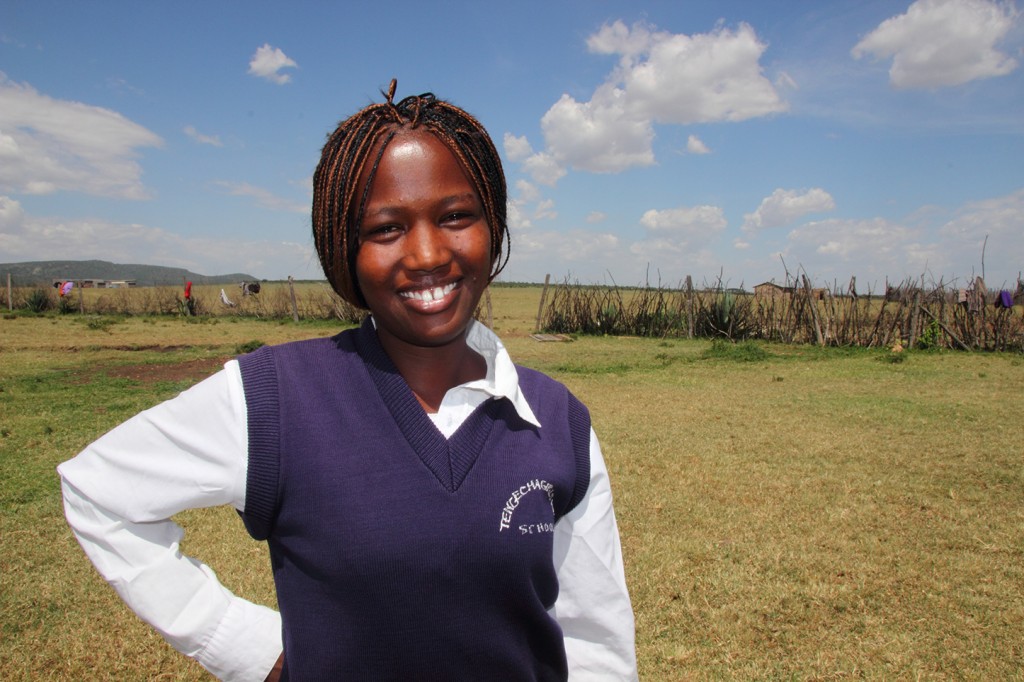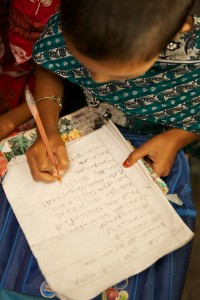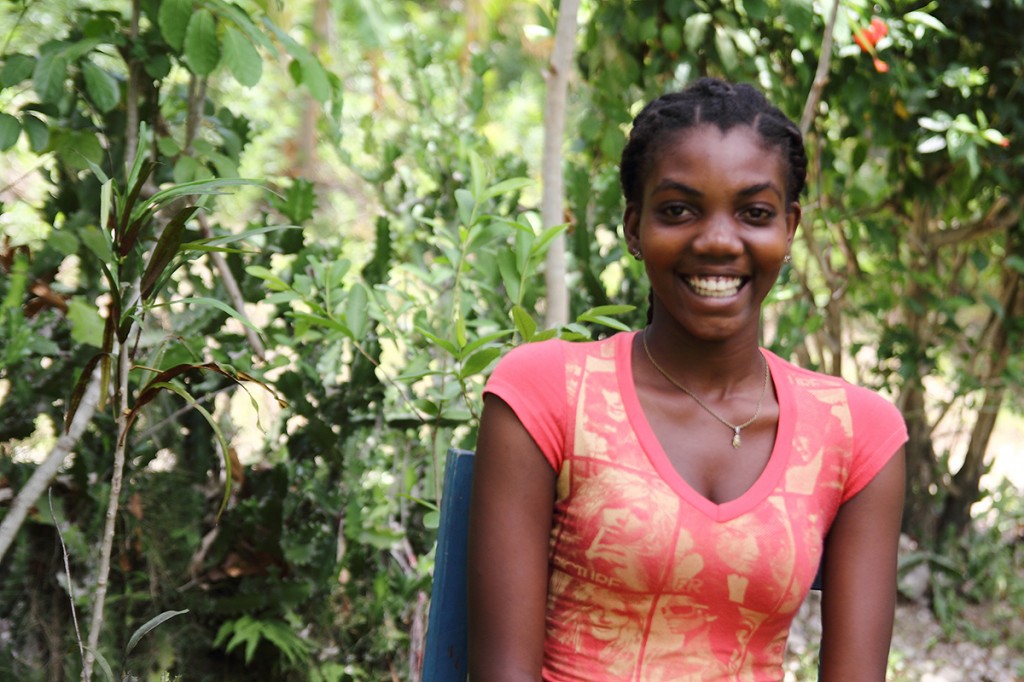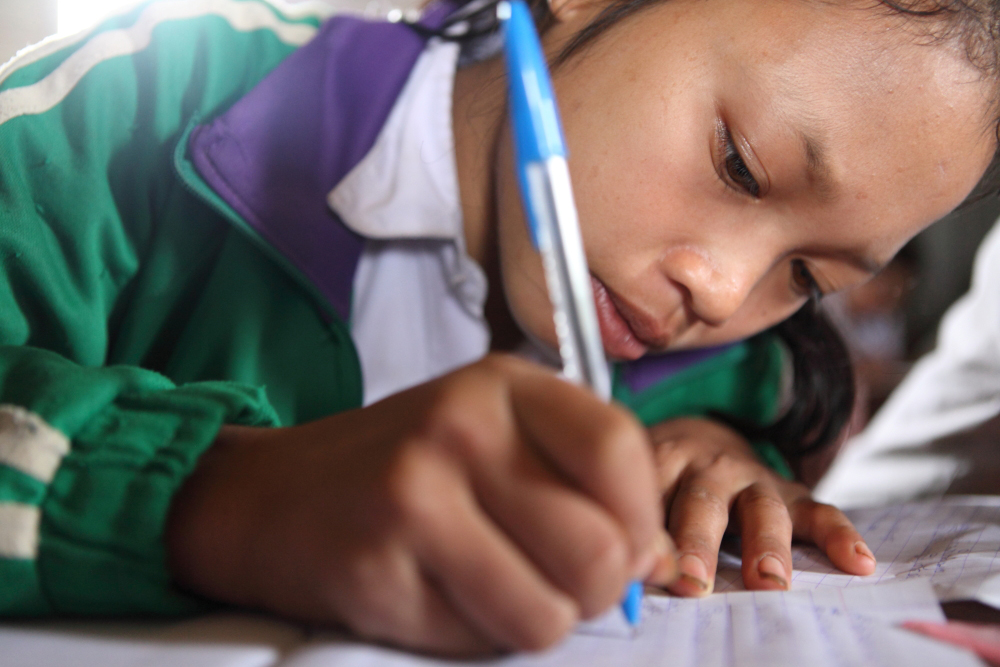Extreme Poverty
Let's do more than talk about educating girls

Malala Yousafzai’s tragic experience of being shot for her advocacy of girls’ rights has brought much attention to the importance of and need for girls’ education worldwide. As Malala celebrates her 16th birthday with a visit to the UN, all eyes are on the world’s response.
Will we simply talk about the importance of educating girls? Or will we do something?

Christine was the only girl in her class in secondary school in rural Kenya. Now, she's a role model for other girls in her community to pursue their education.
When I think of the incredible challenges faced by girls in developing countries to pursue an education, I think of girls like Christine.
Unlike most girls her age, Christine is one of the few in her rural Kenyan community to complete her education. Throughout secondary school, she was the only girl in her class. “It was difficult,” she said.
In this part of the world, most girls her age are either married off young—some as young as 10-years-old—or cannot afford to pay school fees. When finances are tight, parents tend to pay for their sons to go to school, rather than daughters. World Concern provides scholarships for girls like Christine to finish school.
Because she did not marry young, Christine and her family were ridiculed by others for their decision to pursue education. She found it hard to relate to her friends. But this never weakened her determination.

A young girl studying in Bangladesh.
Christine is waiting for the results from her secondary exams so she can apply to university. “I want to become a dentist so that I can come back to the village and help others. One day I want to start a school to educate more girls.”
Christine is now a role model for girls in her community.
“The few girls in the area who are not married off are working hard so they can reach the level I’ve reached,” she said. Twirling her braids for a moment, she paused, then said, “I tell them to work hard because life is so hard.”
“In Maasai land, girls are very vulnerable,” explains Jennifer Warabi, the head teacher at a nearby primary school that provides scholarships for at-risk girls. “Parents send boys to school over girls. We have rescued many girls who were married at a young age, and brought them to school so they can continue their education.”
Ms. Warabi has taken a special interest in one of her teen students named Agnes, who was already married and pregnant when she came to the school. She gave birth while living at the school, but has been able to continue her studies. “She’s performing well,” said Ms. Warabi.
The situation in places like Haiti is critical too. Crushing poverty keeps many girls from attending school, and even fewer from completing their education.
It is especially important to support girls in their pursuit of education. According to UNICEF, only 52% of girls in Haiti participate in primary school and the number drops to 21% in secondary. The need is obvious, and the solution is simple. Not only does an education provide increased social and economic opportunities for a girl but it helps break the cycle of poverty in her family and community.

After finishing high school, Manoucha hopes to become a nurse so she can help others in her rural village in Haiti.
Manoucha is 19 years old but still has a couple of years left of high school. “I like to go to school but I have lost some years because I was sick,” explained Manoucha.
Although she has experienced challenges, Manoucha is committed to finishing high school. “It’s the best way to help your family,” she said. She also has a dream of being able to help others one day. “When I become older I want to be a nurse because if someone is to get sick I will be able to give them aid.”
World Concern is helping Manoucha finish her education. In Haiti, we do this by providing young people like her a way to earn income and pay school fees. Manoucha received a goat and training on how to care for her goat.
Her goat’s first baby was returned to the program so it can be given to another child. This way, the program can sustain itself and kids are able to learn a skill and are given ownership.

A young girl works hard in her classroom in Laos.
“Once there are more baby goats I will sell them to purchase things I need,” she said. “It will help me pay for school fees.”
You can help a girl like Christine or Manoucha finish her education, pursue her dreams and change the future of her entire community. As we stand in awe of Malala’s courage today, let’s help her celebrate this milestone birthday by taking action.
Click here to give the gift of education to a girl in need. $50 provides an entire year of schooling in a poor community.
"I want every girl, every child to be educated." - Malala Yousafzai